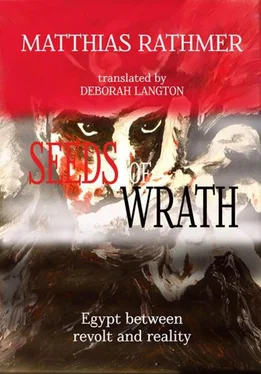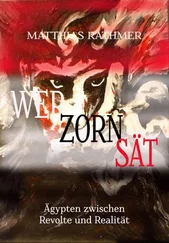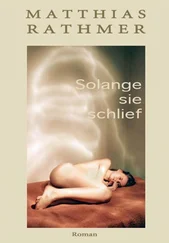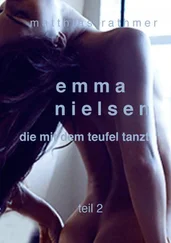Matthias Rathmer
Seeds
of
Wrath
Egypt between
revolt and reality
Translated into English by
Deborah Langton
Matthias Rathmer has lived and worked in Cairo for many years. His novels and other writings are available in bookstores, all well-known international online bookshops or at www.epubli.de.
I’ve had these thoughts so often. I’ve dismissed them so often. Is it right to be open about what a country and its people can show you? Can you really believe what you see and hear? Yes, it is right. And yes, you can. And must.
My thanks to my wonderful wife. She proofed the German version with such patience and created a remarkable cover illustration which captures the book to perfection. And she’s been at my side through thick and thin. Thank you for our extraordinary life together.
And thank you to everyone else involved for the ideas and the prompts, intended or not. Apart from a bit of poetic licence, easily spotted, everything did happen as I’ve described it. It was as fun as it was mad.
Copyright © 2016 Matthias Rathmer
Cover illustration: Stephanie Rathmer, acrylic on canvas
Translation ©: Deborah Langton, München
Published by: epubli GmbH, Berlin
www.epubli.de
ISBN
‘Rebellions usually fail, otherwise they’d be revolutions. But a failed rebellion leaves its mark on history, creates an imprint which partially disappears only to reappear later, so it does change the world.’
(Johannes Agnoli)
Darek, my dearest friend! We miss you so much. You were magnificent. You were the truth. Life, and life alone, wanted this. Obeying life won’t work. You’ll stay in our memories forever. You are the best.
Preface
to the English translation
Oh, dear! A couple of weeks after the publication of the German edition of this collection of short stories, I had a visitor. A representative of the Egyptian Ministry of the Interior, or so he made himself out to be, needed clarification. While his escort waited at the garden gate in best bouncer pose, we sat together on the terrace in an almost companionable atmosphere, drank tea and water and chatted through one of the short stories.
The gentleman, who had clearly benefited from a high level European style of education, wanted to know whether I was in possession of certain documents that had come from the Ministry of Education. If that were the case, which it wasn’t, I replied, I certainly wouldn’t pass any such documents on and, more than anything, wouldn’t reveal who’d given them to me, something the visitor was now pressing for. For a while we talked about protection of one’s sources. That didn’t help. For understandable reasons, our opinions remained different.
Without a doubt, he’d read this particular short story. But he hadn’t got it. The content hadn’t required any statistical analysis of the Egyptian education system nor of planned or past reforms. I had simply put down on paper the reality, a deplorable state of affairs, and had let everyone battling with the mismanagement have a chance to speak. It needed no more than that. It had all been said.
Well now, he said at the end of our conversation of barely an hour. He’d only been sent to recover the documents, he told me. The fact that they were not there, at least not with me, meant everything was now clear. I’d have liked to have had a much longer conversation with him, heard more about him and his department over a beer or two. But he politely turned down my invitation. Id had all been said for him, too.
Like I said, the chap was very friendly and very nice. He was educated. He claimed to have read only this one story in the collection. Neither could he say whether colleagues were scrutinising any of the others. So it looked like farewell. Here’s why. Because he knew that I knew how much of a fool he took me for, it was useless to try and say anything further.
It may be that my visitor had actually been asked to do rather more, like finding out if I was a terrorist, an enemy of the state or a just some pathetic hack who needed to be shown his bounds. And I’d probably been able to make it clear to him that none of these applied. Here’s why. All I’d done was observe. Like I did anywhere else.
In the run-up to publication of the German edition I was asked repeatedly if I had any concerns about the possible consequences with the Egyptian authorities. Nearest and dearest saw me banged up ready for deportation at best. What I had written might stir the Egyptians to displeasure, annoyance or wrath, even. And that’s in spite of my seeing and experiencing it all at first hand in their country.
I remain firm in my conviction. We shouldn’t take ourselves too seriously. If a bit of writing like this can help things be seen from a different perspective and be talked through, then it’s achieved a lot. Anyone who cannot, or will not, have this type of discussion, won’t make any difference.
Just to make that clear again. What these short stories and essays relate has already taken place. It’s just reality. At any rate, the reality I saw on these occasions. Where necessary, in order to protect individual rights, I have introduced a few subtleties. If we’re talking fantasy, dreams and imagination, then these are easily recognisable as such. If you’re used to reading with understanding, that is. Quite apart from the fact I do mean well for this country and its people. Truly.
The tale of the belly-dancer came about through several interviews carried out with various authentic characters in the field. Their personal experiences were both risqué and informative. And the two Salafists from Maadi, I really did meet them. Thank God I’ve never heard anything of them since. The desert trip happened exactly as I described it and the motor madness in this country continues at top speed. Even the proceedings inside the Mugamma went exactly as I’ve written. Superhub Jussuf was allowed to carry on his trade as before. And how important President Sisi is for Egypt, well, that seems pretty close to the reality. He hasn’t made any complaints so far, anyway.
Some have lamented the exposure, both large and small-scale, that my writing has given to Egyptians and their society in the piece entitled ‘It’s good to know’. A few readers have seen a degree of malice alongside the fond humour and all the madness. Well, OK. Everyone is entitled to an opinion. But I’ve left it all the same in the translated version. I’m telling you. Anyone who goes around being provocative like the Egyptians do, whether deliberately or not, shouldn’t be surprised at my occasional, admittedly sardonic, remarks.
And finally... To be able to observe, to be permitted to observe. That has been a joy, a gift and a necessity. It was enjoyable, challenging and not always that easy. Not simply to close your eyes to it. At a time like this when, above all in Arabic Muslim lands, any critical voices among journalists and authors are being muzzled, subjected to confused accusations and violence on the part of their supposed rulers, the debate about truthfulness is needed more than ever. Anyone who can’t do both is a problem.
German and English are different. Wow! You don’t say! But it needs mentioning. Germans have failings which they can do something about. But when it comes to the shortcomings of their language when translating it into English, well, that’s not their fault. The language could all too easily end up with a semantic and morphological clumsiness. Overcoming this was the task of the translator.
Deborah! You’ve done a great job. With huge commitment, professionalism and insight you’ve made it possible to bring these tales from another country to a significantly wider audience. I’m really grateful to have had the chance to do this, as well as for our teamwork. Here’s to the next time!
Читать дальше











